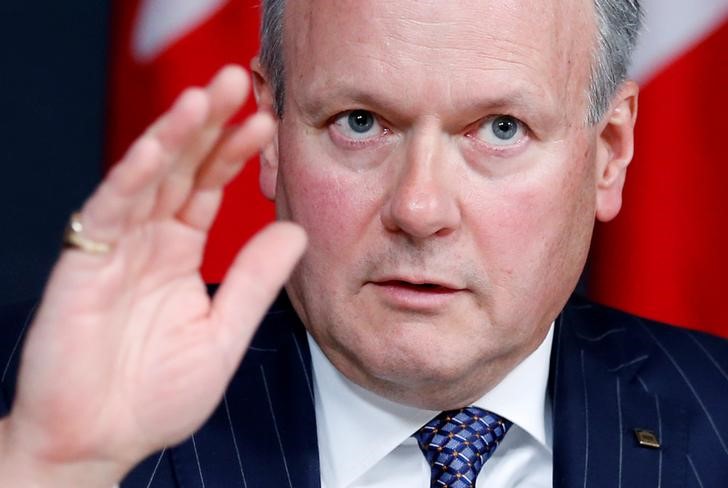(Adds comments on Trump election, response to shocks)
SANTIAGO, Nov 11 (Reuters) - The head of the Bank of Canada said on Friday he could not speculate on how Donald Trump's election as U.S. president would affect monetary policy, but that the central bank will respond to shocks as needed and rely on its inflation target to set interest rates.
Governor Stephen Poloz, speaking at a central bank conference in Santiago, reiterated that economic growth will be around 2 percent for nearly the next two years, and said he expects inflation to converge on target around the middle of 2018.
Asked whether the spillovers from any changes in U.S. policy would be positive or negative, Poloz said he would not speculate because there are "too many things that may be different."
"It would be odd for a central banker, certainly me, to speculate on how that will all work out positive or negative. It's a hypothetical situation," he said.
"We've got a good framework for policymaking, inflation target framework. If there are shocks to it we will respond to the shocks. But we won't respond in advance to a hypothetical analysis."
A Reuters poll of primary dealers forecast the Bank of Canada's next move would be a hike in the first half of 2018, but analysts said fears about Trump's impact on Canadian trade have raised the risk of a cut. CA/POLL
Poloz reiterated the bank's forecast for growth to be about 2 percent "or thereabouts" for almost the next two years.
"We'll be closing our excess capacity gap over the next number of quarters and we expect to be at full capacity around the middle of 2018," he said.
"Inflation will continue to be below target through that period, and won't converge on the 2 percent target until around the middle of 2018."
The governor said business investment remained weak, and that most conversations with companies suggest the weakness is "related to uncertainty" - a theme the bank has reiterated for months.
"I don't have to remind you how many sources of uncertainty we face. Those uncertainties continue to be there and have been holding companies back, really getting us back to our full capacity," Poloz said.
